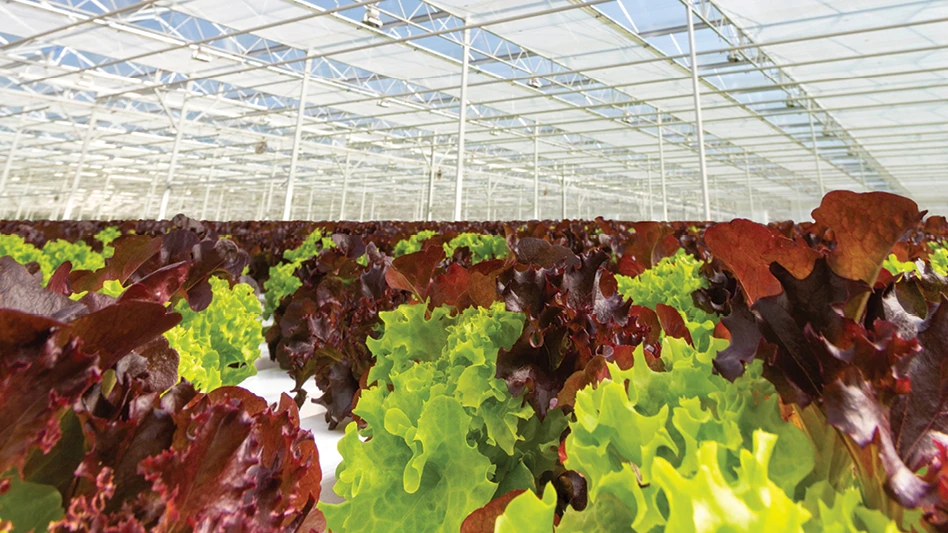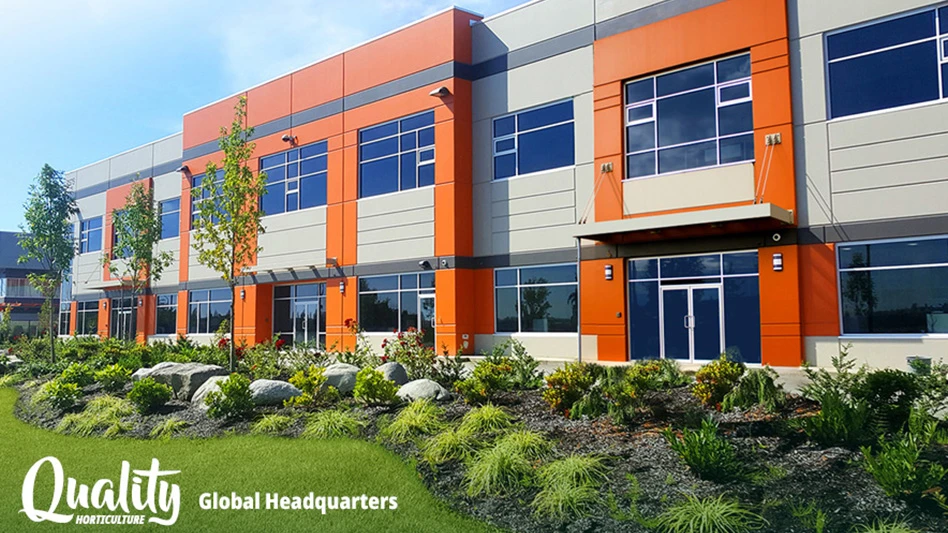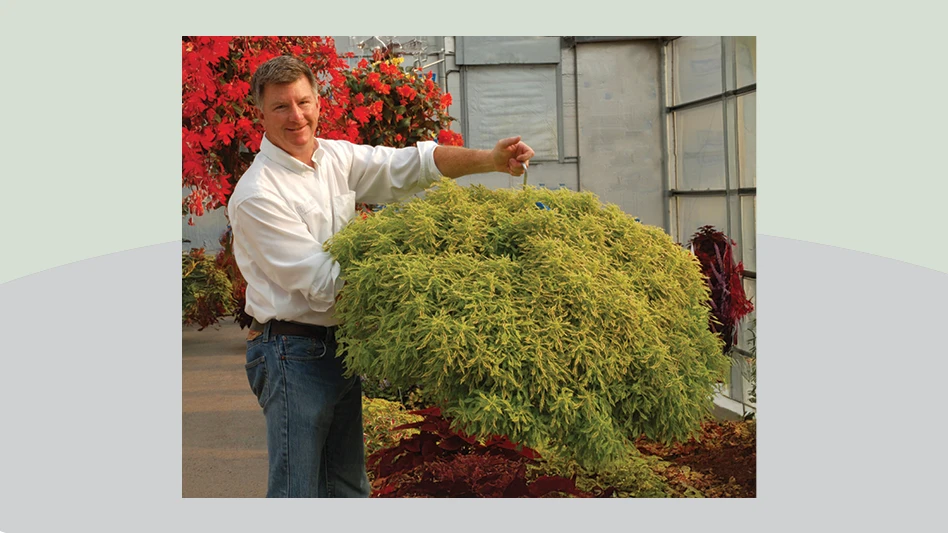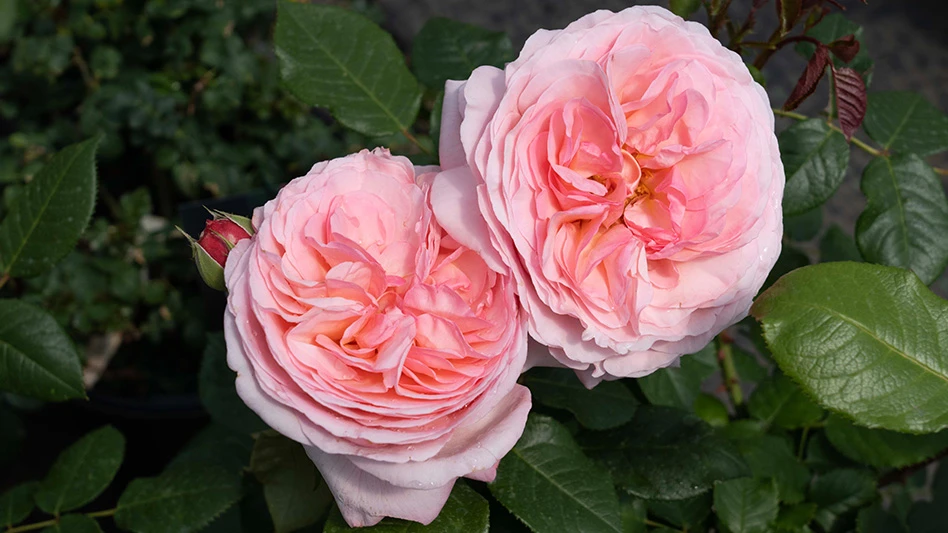 In some ways, Davis Floral Co. is an established greenhouse with a rich history and a long-standing reputation in Dewey Rose, Ga. In other ways, since transitioning into second-generation leadership four years ago, it has also become a new, young business all over again.
In some ways, Davis Floral Co. is an established greenhouse with a rich history and a long-standing reputation in Dewey Rose, Ga. In other ways, since transitioning into second-generation leadership four years ago, it has also become a new, young business all over again.
"It's been four years of experimentation and change and trying new things," says owner Michael Davis, whose father Robert founded the company 50 years ago. "I firmly believed there was a better way to do things."
Smoothly blending tradition and innovation has been a challenge as Davis looks for ways to build upon the company's strong foundation. By trying new things, he and his wife Lisa have grown the company and improved production of the rooted cuttings, annuals and finished crops they grow for wholesale.
Most recently, Davis began using an automated drip watering system to control the greenhouse's water usage. The experiment is part of a study through the University of Georgia (UGA), where both generations of Davis earned their horticulture degrees. A grad student writing a thesis on automated watering benefits is working with Davis Floral, along with a couple of nurseries, to examine what difference drip watering makes.
 Davis began testing the watering system last spring with some geraniums, and then the study launched in September with about 500 poinsettias. The automated system consists of a series of sensors in pots, which are wirelessly connected to a computer in the office. The computer triggers a solenoid valve to pulse-water the plants a little at a time.
Davis began testing the watering system last spring with some geraniums, and then the study launched in September with about 500 poinsettias. The automated system consists of a series of sensors in pots, which are wirelessly connected to a computer in the office. The computer triggers a solenoid valve to pulse-water the plants a little at a time.
"What we’ve seen through this experience so far is we’re using considerably less water on poinsettias," Davis says. "We're only using roughly 60 percent of the water, so a third less - and, of course, with considerable labor savings, too."
After manual setup, the automated system replaces most of the labor traditionally tied to watering. With no drought stress, the drip tape promotes faster plant growth. As a result, it also reduces the amount of fertilizer required.
Already realizing the benefits of automated watering, Davis will continue testing the system with geraniums next year as UGA continues measuring results.
Innovating to improve
Davis makes changes almost constantly to stay up-to-date with new methods. Robert focused on growing plants — not using computers — so Michael is upgrading to modern systems in order to grow (the plants and the business) more efficiently.
"We're using a production software far more intensively than we used to for scheduling crops," says Davis, who spent several 12-hour days inputting data to set up the system. "Now, everything we grow is set up in the computer. It’s scheduled by start week with an estimated finish week. We know what we plant. We keep track of any loss if we have it."
The software tracks growing seasons and sales volumes to help Davis understand and streamline operations. Orders are printed with pole locations to easily find plants inside the three-acre greenhouse. Whereas Robert stored most of this data in his head with years of experience, the software has helped Michael organize the greenhouse operations and train others to execute them.
"It makes planning of the seasons quicker, more streamlined and more organized," Lisa says. "It’s easier to find records of what was done the previous year, what the sell-through was. The biggest investment we've made in the last five years is organizing."
After entering the data himself, Davis hired an assistant production manager this year to assist with recordkeeping. The company continues to grow, with a team of about 12 full-time employees that doubles in size during peak season. The additional help — through new systems, technologies and people — has streamlined the production process at Davis Floral, freeing Davis to work on growing the company as it focuses on growing plants.
"Coming up with a spring plan initially [was difficult] because I added crops and other varieties, switched a lot of varieties around, and trialed other varieties," Davis says. "There was just a tremendous amount of labor. Now that we have an established plan, and also we’ve got people helping, it’s far easier than it was."
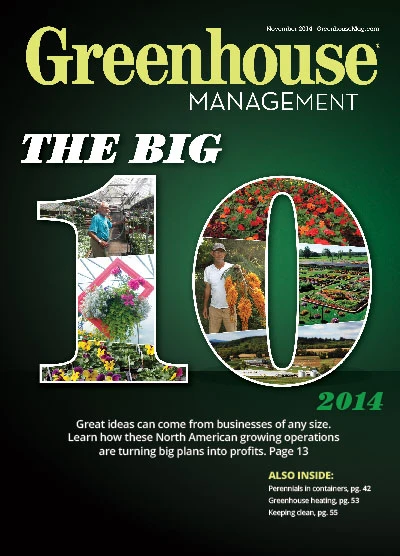
Explore the November 2014 Issue
Check out more from this issue and find your next story to read.
Latest from Greenhouse Management
- North Carolina Nursery & Landscape Association announces new executive vice president
- Plant Development Services, Inc. unveils plant varieties debuting in 2025
- Promo kit available to celebrate first National Wave Day on May 3
- Applications now open for American Floral Endowment graduate scholarships
- Endless Summer Hydrangeas celebrates 20 years with community plantings
- Invest in silver
- Garden Center magazine announces dates for 2025 Garden Center Conference & Expo
- USDA launches $2 billion in aid for floriculture growers
